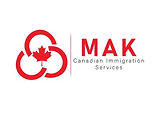Spouse Visa Application Canada: Requirements You Must Know
- Mak Immigration
- Aug 7
- 4 min read

Canada places great importance on family reunification, which is why the country offers pathways that allow Canadian citizens and permanent residents to sponsor their spouses to join them. The Spouse Visa Application Canada process is part of the family sponsorship program under Immigration, Refugees and Citizenship Canada (IRCC). It enables eligible individuals to sponsor their legally married spouse, common-law partner, or conjugal partner for permanent residency in Canada.
Before applying, it’s essential to understand the eligibility criteria, documentation requirements, and steps involved in the process to avoid unnecessary delays or rejections. Below are the key requirements and considerations for a successful spouse visa application.
Who Can Apply?
The spouse visa process in Canada is designed for Canadian citizens or permanent residents who wish to sponsor their foreign national spouse or partner. To apply, the sponsor must meet specific criteria, and the applicant (the spouse) must also fulfill certain requirements.
Eligibility Criteria for Sponsors
To be eligible as a sponsor, you must:
Be at least 18 years of age
Be a Canadian citizen, permanent resident, or a person registered under the Canadian Indian Act
Reside in Canada, or plan to return to Canada once your spouse becomes a permanent resident
Not be receiving social assistance for reasons other than disability
Be financially capable of supporting your spouse for at least three years
Additionally, you must not have been convicted of a violent crime, sexual offense, or any offense that caused bodily harm to a family member. Sponsors who have previously sponsored a spouse must wait at least five years before sponsoring another spouse.
Eligibility Criteria for the Sponsored Person
The person being sponsored must fall under one of the following relationship categories:
Spouse: Legally married to the sponsor
Common-law partner: Lived with the sponsor in a conjugal relationship for at least 12 consecutive months
Conjugal partner: In a committed relationship with the sponsor for at least one year but unable to live together due to barriers such as immigration restrictions, cultural or legal obstacles
Proof of a genuine relationship is required, and IRCC may reject applications that appear to be entered into for immigration purposes only.
Types of Applications
There are two main application types under the Spouse Visa Application Canada program:
Inland Sponsorship
This is for couples who are already living together in Canada. The sponsored spouse must have temporary status in Canada, such as a visitor, worker, or student. Inland applicants may also apply for an open work permit while their permanent residence application is being processed.
Outland Sponsorship
This is for couples where the sponsored spouse is living outside Canada. The application is processed by the visa office responsible for the applicant’s home country. Outland applicants can still travel to Canada during processing, but re-entry is not guaranteed.
Required Documents
A complete application requires various forms and documents from both the sponsor and the applicant. Below is a general checklist of required documents:
Completed sponsorship and permanent residence application forms
Proof of status in Canada for the sponsor
Marriage certificate or proof of common-law/conjugal relationship
Identity documents (passports, national IDs)
Police clearance certificates
Medical examination results
Proof of relationship (photos, travel records, communication history)
Financial documents (tax records, job letters, pay stubs)
Missing or incorrect documents are one of the most common reasons for application delays or refusals, so it is important to double-check everything before submission.
Proof of Relationship
A critical part of the spouse visa application is demonstrating the authenticity of your relationship. IRCC requires evidence that your marriage or partnership is real and ongoing. Suitable forms of proof include:
Photos of you together with family and friends
Joint bank accounts or shared leases
Records of communication (emails, texts, call logs)
Travel itineraries showing visits to each other
Sworn affidavits from friends or family members
The more documentation you provide, the stronger your case will be.
Application Process
The Spouse Visa Application Canada process follows these basic steps:
Preparation: Collect all required forms and supporting documents.
Submission: Submit the complete application package to IRCC, either online or by mail.
Acknowledgment: IRCC will confirm receipt and begin processing the application.
Biometrics and Medical Exam: The sponsored person may be asked to complete biometric data collection and undergo a medical exam.
Additional Requests: IRCC may request interviews or further documents to verify the relationship.
Decision: If approved, the sponsored spouse will receive confirmation of permanent residence.
Processing Time
Processing times can vary based on the type of application (inland vs. outland), the applicant’s country of origin, and the completeness of the application. On average, it takes 10 to 12 months to process a spouse visa application, though it may be shorter or longer depending on the circumstances.
Responsibilities After Approval
Once the application is approved and your spouse becomes a permanent resident, you as the sponsor are legally responsible for supporting them for three years. This financial undertaking begins from the date your spouse becomes a permanent resident, regardless of any changes in the relationship.
Conclusion
The Spouse Visa Application Canada process is designed to reunite families and allow couples to build their future in Canada. However, it involves careful planning, accurate documentation, and a genuine relationship. Understanding the eligibility requirements, application types, and documentation needs is crucial to ensuring a smooth and successful process.
Applicants and sponsors who take the time to prepare thoroughly, provide honest information, and stay informed throughout the process significantly increase their chances of approval. If you’re ready to take the next step in bringing your partner to Canada, make sure your application meets all the requirements from the start.




Comments